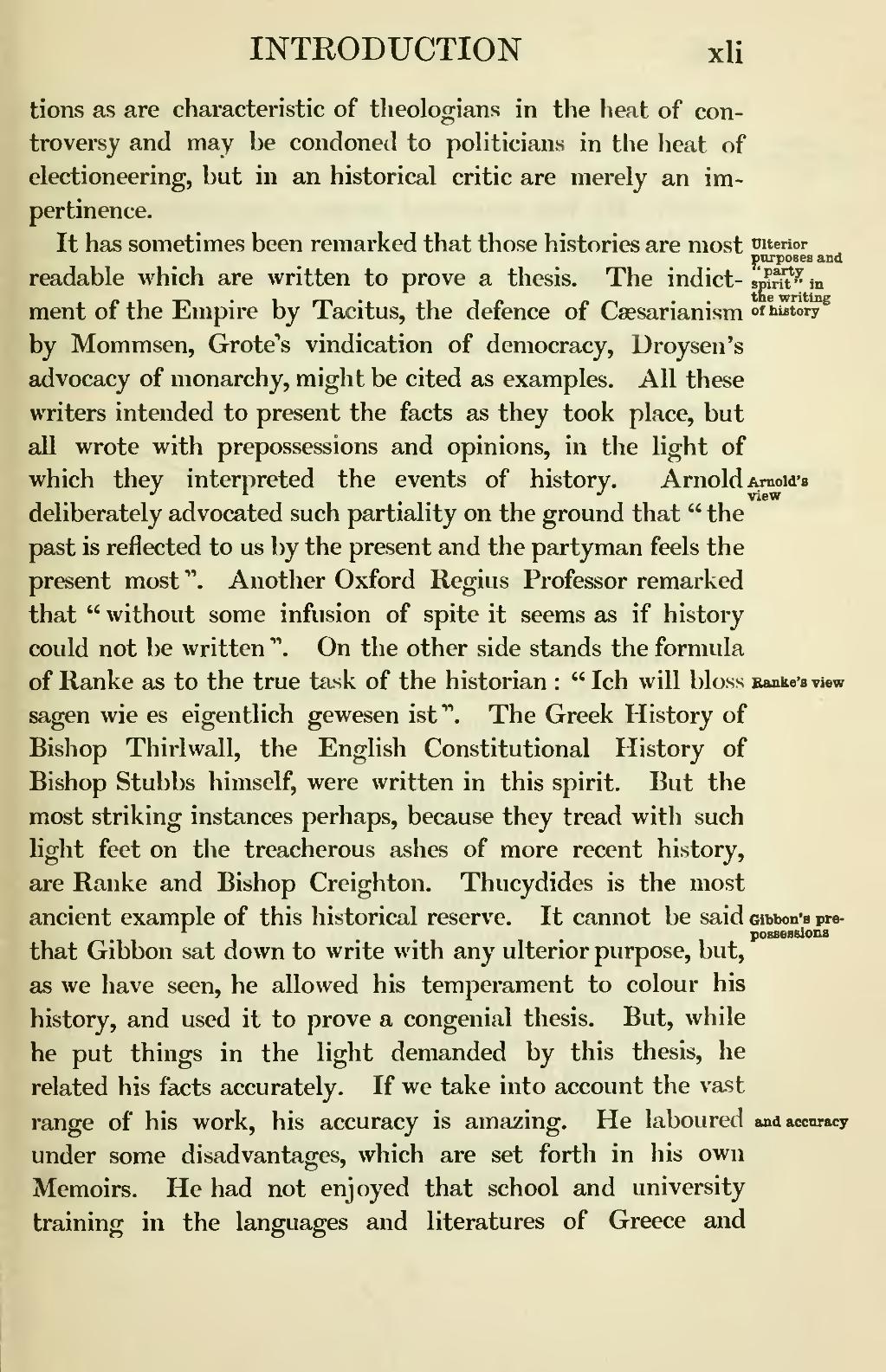tions as are characteristic of theologians in the heat of controversy and may be condoned to politicians in the heat of electioneering, but in an historical critic are merely an impertinence.
Ulterior purposes and "party spirit" in the writing of history It has sometimes been remarked that those histories are most readable which are written to prove a thesis. The indictment of the Empire by Tacitus, the defence of Cassarianism oratory by Mommsen, Grote's vindication of democracy, Droysen's advocacy of monarchy, might be cited as examples. All these writers intended to present the facts as they took place, but all wrote with prepossessions and opinions, in the light of Arnold's view which they interpreted the events of history. Arnold deliberately advocated such partiality on the ground that "the past is reflected to us by the present and the partyman feels the present most". Another Oxford Regius Professor remarked that "without some infusion of spite it seems as if history could not be written". On the other side stands the formula Ranke's view of Ranke as to the true task of the historian: "Ich will bloss sagen wie es eigentlich gewesen ist". The Greek History of Bishop Thirlwall, the English Constitutional History of Bishop Stubbs himself, were written in this spirit. But the most striking instances perhaps, because they tread with such light feet on the treacherous ashes of more recent history, are Ranke and Bishop Creighton. Thucydides is the most Gibbon's prepossessions ancient example of this historical reserve. It cannot be said that Gibbon sat down to write with any ulterior purpose, but, as we have seen, he allowed his temperament to colour his history, and used it to prove a congenial thesis. But, while he put things in the light demanded by this thesis, he related his facts accurately. If we take into account the vast and accuracy range of his work, his accuracy is amazing. He laboured under some disadvantages, which are set forth in his own Memoirs. He had not enjoyed that school and university training in the languages and literatures of Greece and
